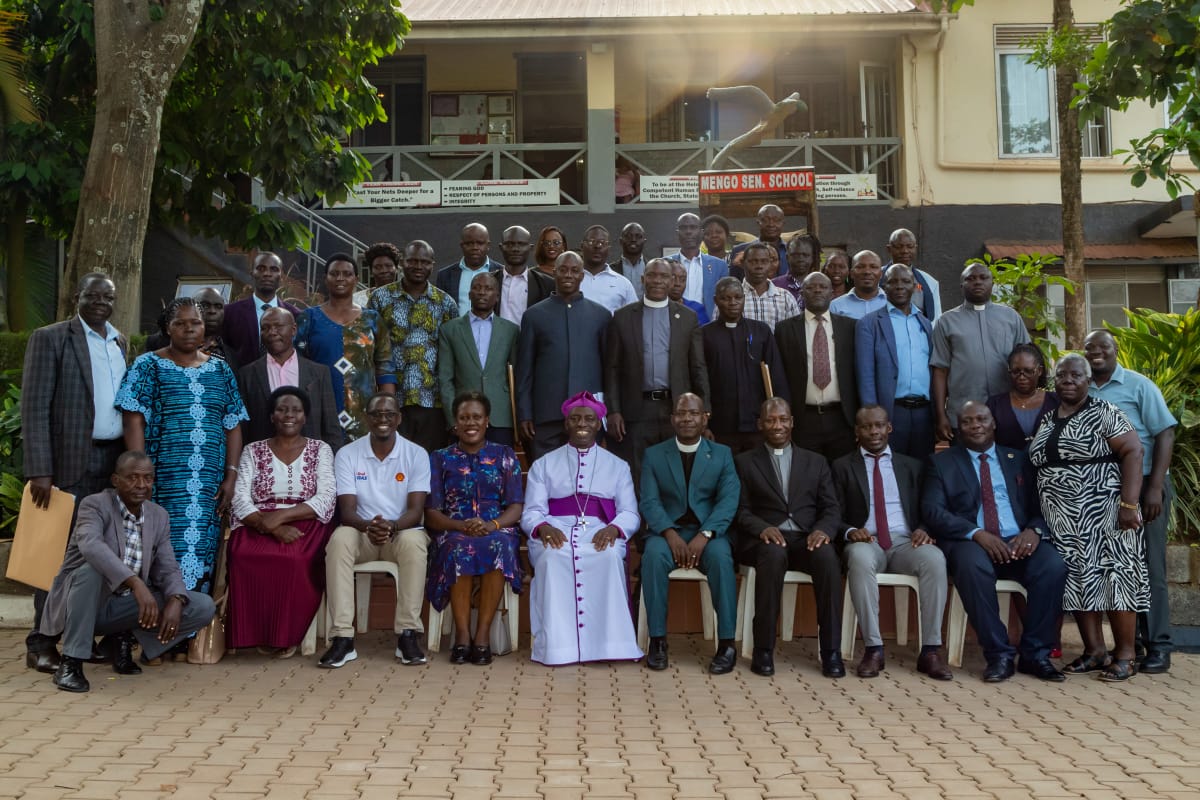Rt. Rev. Moses Banja, Bishop of Namirembe Diocese, has urged Church of Uganda–founded institutions to urgently integrate clean cooking systems into their school operations, framing the transition as both a moral duty and a practical necessity for safeguarding Uganda’s environment and the health of school communities.
Speaking during a Gas Cooking Workshop held at Mengo Senior Secondary School, Bishop Banja who also serves as Vice Chairperson of the Church of Uganda Board of Trustees, commended Vivo Energy Uganda for championing modern, safer cooking alternatives in education institutions.
He warned school leaders against harmful cooking and farming practices that continue to accelerate environmental degradation, saying the responsibility to reverse damage rests heavily on institutions that serve large populations.
His call comes as Vivo Energy Uganda and the Church of Uganda launch a joint effort to replace firewood and charcoal with Shell Gas across COU model schools.
Vivo Energy Uganda Managing Director, Joanita Mukasa Menya, said the partnership reflects the company’s commitment to people and the planet.
“Today we are partnering with the Church of Uganda to bring forward the dream of clean energy in schools,” Menya said.
“Our foundations are partnerships, people, and the planet. Schools handle thousands of learners, and the people who cook for them are exposed to health risks. Clean energy protects them and also helps save the environment.”
She emphasized that after strong results at King’s College Budo, they are ready to support COU institutions in adopting the same model.
“We invite everyone to start embracing clean cooking energy because it's the future,” she added.
Rev. Canon Paul Kakooza, the COU Director of Education Services, reinforced Bishop Banja’s message, revealing that schools contribute significantly to tree-cutting due to their large populations.
“Schools use a lot of firewood, which means we contribute significantly to cutting trees,” Kakooza said. “If schools embrace alternative energy, the positive impact on the environment will be immense.”
He said the rollout will begin with model schools before expanding to all COU institutions.
“We are showing headteachers that clean energy has already worked elsewhere. King’s College Budo is a successful case. They cook beans, posho, and everything else using LPG—it’s possible, and it works.”
Eng. Herbert Abigaba the Principal Energy Officer, Ministry of Energy and Mineral Development commended the initiative, noting that it aligns with the government’s commitment to accelerating clean-energy uptake.
He expressed appreciation to Vivo Energy Uganda and partners for supporting national efforts to promote sustainable cooking alternatives.
Mengo SS headteacher and chairperson of COU headteachers, Grace Nantajja, criticized the contradiction of educational institutions promoting sustainability while consuming massive amounts of firewood.
“As education institutions, we are supposed to teach,” he said. “But when we become number one users of firewood, we lose the very meaning of why we exist. I have 7,000 learners and about 14,000 parents. When we adopt clean cooking, the ripple effect is huge.”
Vivo Energy LPG Manager, Alvin Bamutire, said the partnership will reduce environmental pressure while improving health and efficiency in school kitchens.
“Firewood use is taking down the environment,” he said. “Uganda’s forest cover dropped from 24% in the 1990s to around 9% two years ago. It’s only now recovering to 11%.”
He revealed that while LPG infrastructure normally costs more than $20,000 per school, Vivo Energy will fully finance installations for selected COU model schools.
“All the schools have to do is buy the gas,” he said.
He also highlighted dramatic improvements at King’s College Budo:
“What used to take 7 hours now takes 1 hour. Beans that took 5 hours now take 2 and a half. The efficiency is remarkable.”
Beyond faster cooking, Bamutire warned that smoke-filled kitchens have caused chronic respiratory illnesses among cooks.
“When you go to a kitchen using firewood, you see dark walls, dusty saucepans, and people struggling to breathe. LPG kitchens are clean, safe, and healthy.”
He added that gas prices are expected to drop significantly as Uganda begins extracting LPG from the Albertine region.
“Gas prices may drop by more than 30% in the next two years,” he noted.
During the workshop, Vivo Energy demonstrated LPG installations designed for high-demand institutions, showcasing bulk tanks, pressure-controlled piping, and safety systems.
Bishop Banja said the Church expects school heads to lead the transition, stressing that clean cooking is no longer optional.
With thousands of Church-founded schools preparing meals for millions of learners, the impact of adopting LPG could be transformative reducing pressure on forests, improving health outcomes, and setting an example for communities nationwide


